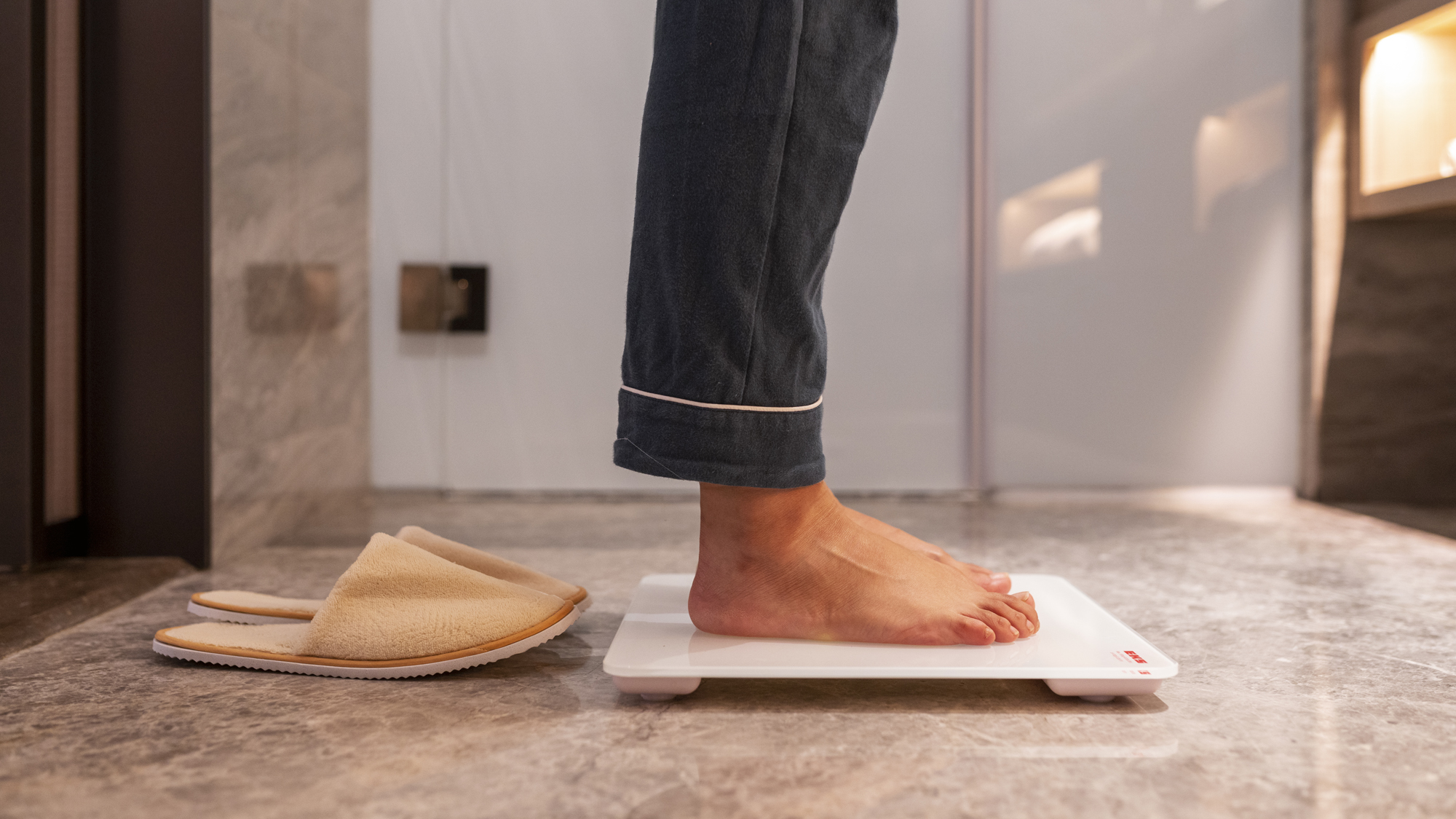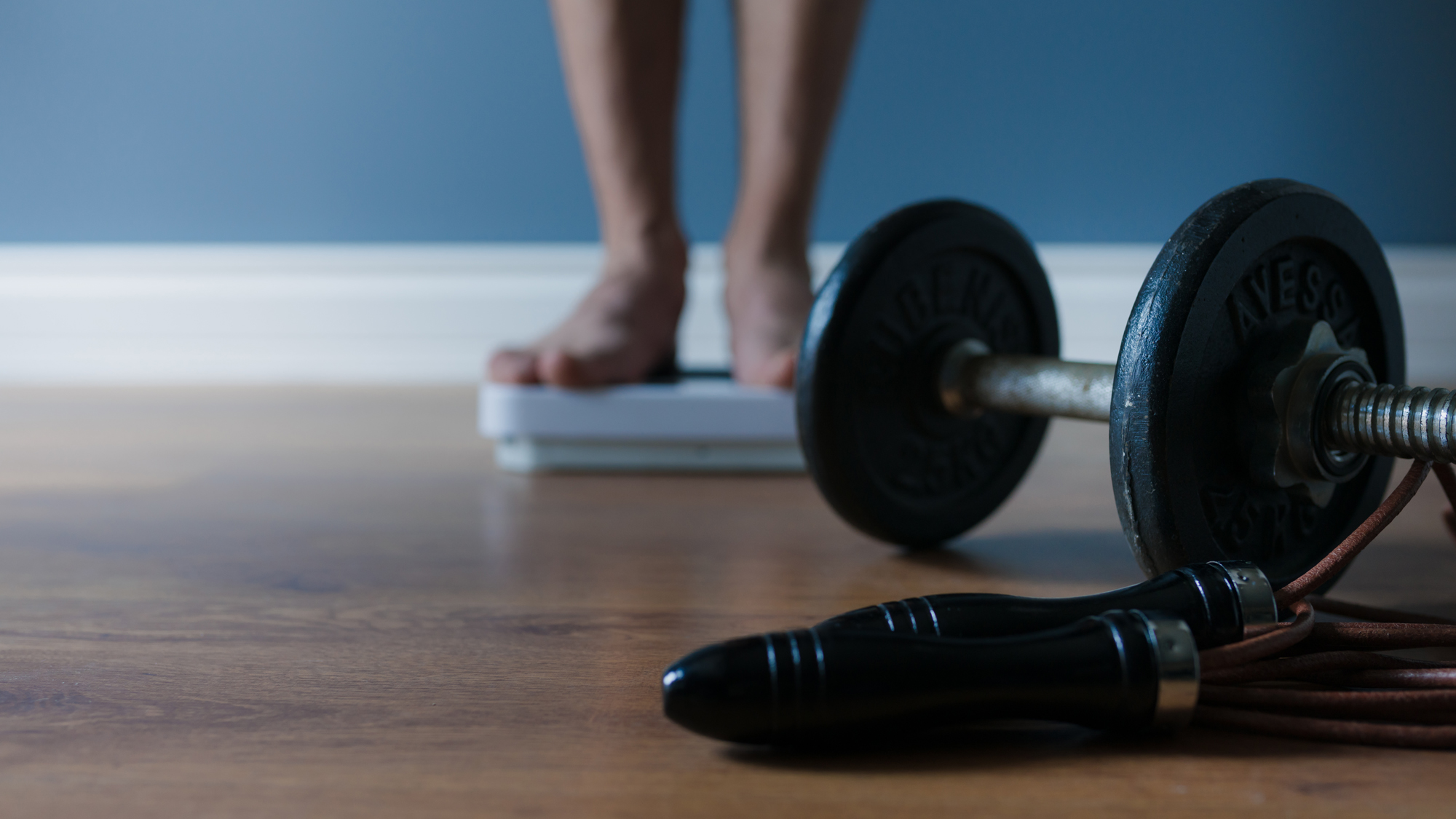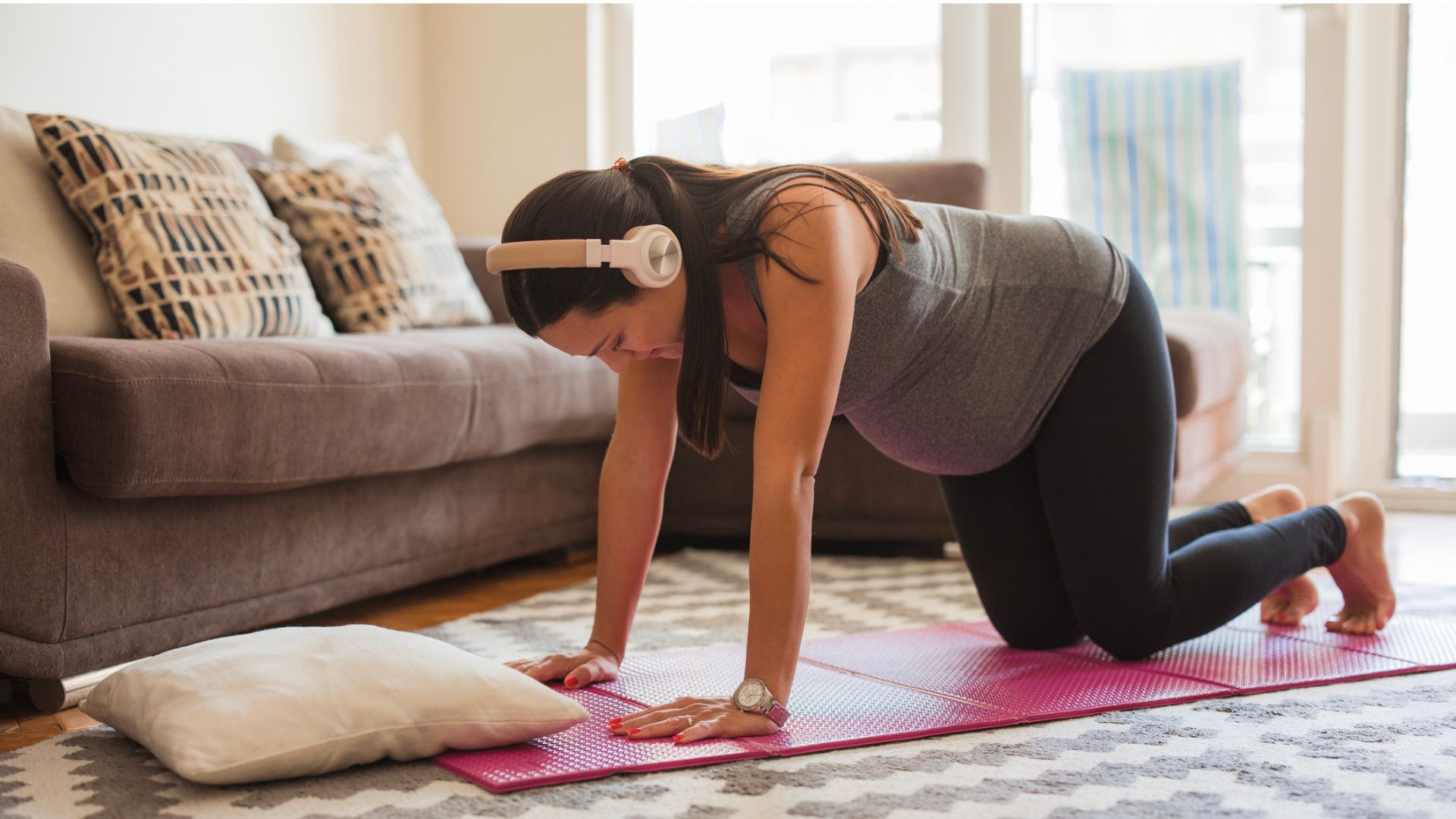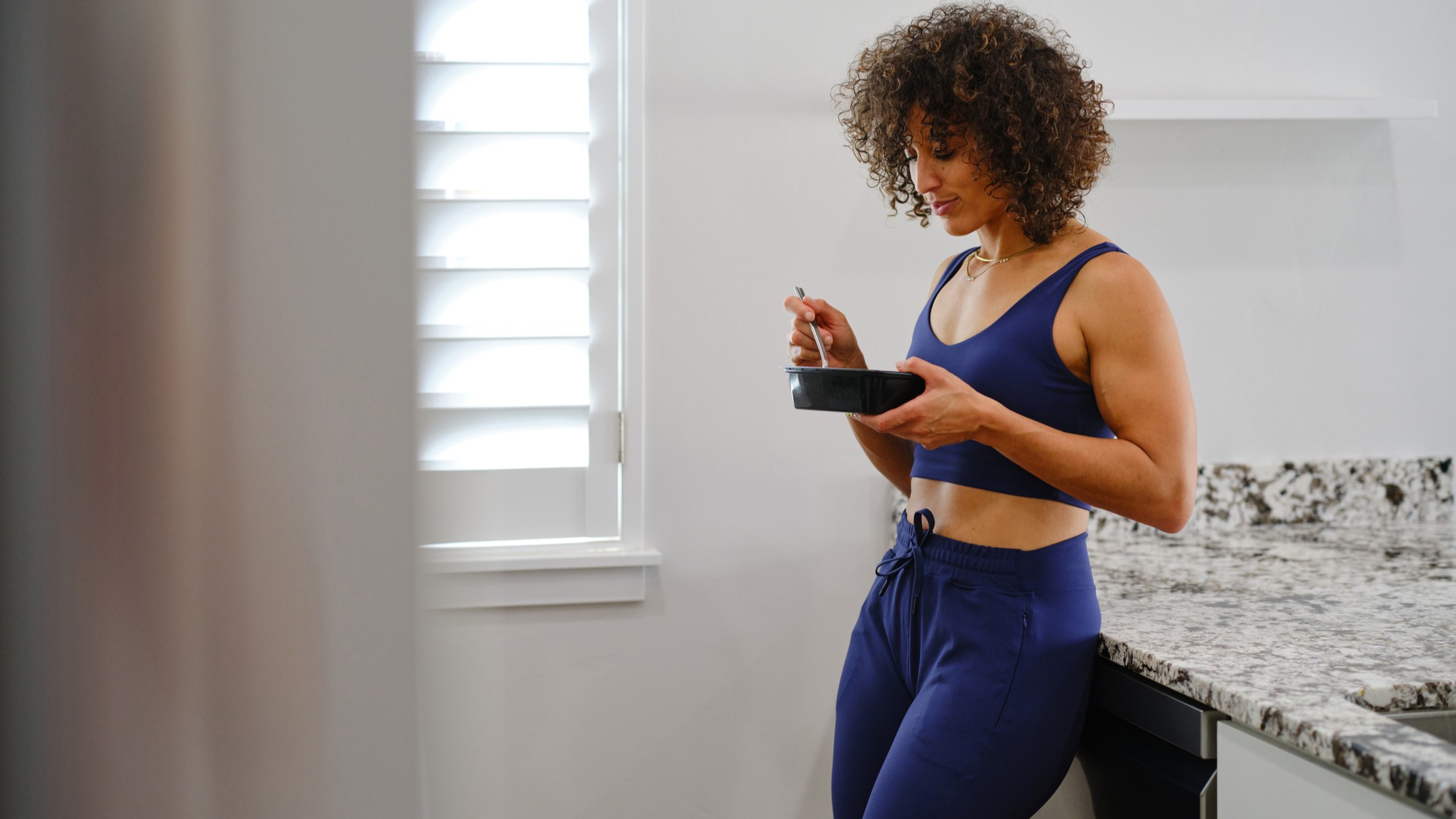I weighed myself every morning for five years—here's what happened when I stopped
The numbers on the scales were a form of control, but I'm happier without them


After I graduated from college, I decided I would lose some weight. I felt that the late nights, endless caffeinated drinks, and lack of structure in my diet were starting to take their toll. Before entering the adult world, it seemed like the right time to start exercising.
Over the past few years, the way we talk about weight has shifted so that it's more about the positive effects of exercise and less about restrictive diets. Back then, although I was learning how to lift with the best adjustable dumbbells, my main focus was on the food I ate.
I began to see the world through numbers—the calories in my diet, the calories burned on the treadmill, and my weight on the scales. At the time, I had a 'the ends justify the means' attitude and didn't take a healthy, sustainable approach to weight loss, like going for a walk every morning.
After a few months, I arrived somewhere close to my ever-changing weight goal, but I couldn't shake the fixation on the scales. Each morning, I'd dutifully step on the scales and feel a little happy if I lost weight, frustrated if I gained it.
Over time, my exercise goals changed, so I read up on cardio vs weights for weight loss and focused on building muscle. My complex relationship with the scales remained, which meant I was stuck in an internal battle, gaining weight from my workouts but secretly feeling guilty about it.
Then I found the Maintenance Phase podcast, which debunks common weight loss myths. As I binged the back catalog, I had to confront the complex feelings I had about my weight. After listening to the show, I was convinced that the time was right to stop weighing myself each day. Here's what happened.
1. I stopped worrying about what I eat
Many smartphone apps help you monitor what you eat. I used an app to scan every food and drink packet, set a low-calorie goal, and rigidly stuck to it. Depending on your goals, you may find this helpful, but it's a thin line between habit and obsession.
Get the Fit&Well Newsletter
Start your week with achievable workout ideas, health tips and wellbeing advice in your inbox.
Unlike a traditional weight loss diet, I wasn't given a list of food I could or couldn't eat, so I had to make each decision myself. It was mentally taxing but also meant that I wasn't really enjoying food; it was a functional relationship at best.
I picked up habits that I now think would be called disordered eating, behaviors that are often associated with diagnosed eating disorders. The app made it easier to do this, but I got daily reinforcement from the scales.
I could track what I ate, then see the results the following morning. Lost weight? Continue yesterday's pattern. Gained weight? Take the calories down to compensate. I disrupted that feedback loop by not weighing myself each day and now enjoy what I eat.
2. I'm happier with my body

While finishing college is what kickstarted my weight loss, I'd had a complicated relationship with my body for most of my life. When I was 10 years old, a teacher called me fat. At school, I was given the moniker Fatboy Fat (a play on the name of the popular British DJ Fatboy Slim).
Sometimes, though, you have a moment where everything changes. Listening to Maintenance Phase was what did it for me. The duo's episode on whether being fat is bad for you made me question what I thought I knew about weight, which weakened my critical inner voice.
I tried to rationalize why I weighed myself every day. Ultimately, it was about control—I wanted my weight to be my choice rather than someone else's. As my thoughts about my body shifted, it became easier to turn my back on the scales as a form of validation.
I've been meditating every day for a while now. The combination of a more relaxed internal monologue, lack of scale data to validate my negative beliefs, and a more mindful approach to critical thoughts mean that I can accept and be grateful for the body I have.
3. It's been easier to hit my fitness goals
Your body needs energy to function—this is a fundamental part of being human. Calories are a measure of energy, so by limiting them, you have less energy. This is why I felt lethargic and over-tired during the early days of my weight loss journey.
Over the years, I began to eat more again, though different foods this time around, as I invested in some of the best vegan cookbooks and prepared meals from scratch. But by worrying about the number of calories in the food, I was still restricting what I ate and limiting my energy.
Although you can build muscle in a calorie deficit, it needs professional oversight if you want to do it safely. I could break that mental fixation on calories and just eat what I need when I want by stepping off the scales.
This had the unexpected side effect of actually helping me build muscle. You need the energy to work your muscles during a workout, but you also need to refuel them afterward to promote recovery. By letting go of the scales, I gave my body what it needed; food.
If you need support, you can contact the National Eating Disorders Association or The Eating Disorder Foundation. Both services offer individual support and resources about body image and our relationship to food. In the UK, you can contact Beat, an eating disorder charity with helplines and resources.

James is a London-based journalist and Fitness Editor at Fit&Well. He has over five years experience in fitness tech, including time spent as the Buyer’s Guide Editor and Staff Writer at technology publication MakeUseOf. In 2014 he was diagnosed with a chronic health condition, which spurred his interest in health, fitness, and lifestyle management.
In the years since, he has become a devoted meditator, experimented with workout styles and exercises, and used various gadgets to monitor his health. In recent times, James has been absorbed by the intersection between mental health, fitness, sustainability, and environmentalism. When not concerning himself with health and technology, James can be found excitedly checking out each week’s New Music Friday releases.
-
 I’m a personal trainer and I love this plank variation for building core strength and reducing back pain
I’m a personal trainer and I love this plank variation for building core strength and reducing back painThis one move could help you get a stronger core
By Maddy Biddulph
-
 Put down the protein shake—this high-protein chicken and rice recipe is a better way to refuel after a workout
Put down the protein shake—this high-protein chicken and rice recipe is a better way to refuel after a workoutAnd it only takes 10 minutes to make
By Lou Mudge